Image Courtesy: Vickie Zhang
The Futures of Mobility Research Network, founded in 2022, is a transnational, trans-disciplinary collective of scholars and creative practitioners with a shared critical interest in how diverse and evolving forms of mobility and immobilization are shaping human life-worlds in and across Asia today. The Network brings together participants working in India, Singapore, Hong Kong SAR, Australia, and the United Arab Emirates, and is committed to comparative and multimodal methodologies for understanding (im)mobility beyond the metropolitan west. We aim to expand both academic and creative approaches to mobility through collaborative activities including transnational workshops, conference panels, symposia, and co-produced scholarly publications, grant projects, and creative works. Some key questions the Network is interested in include:
List of network members:
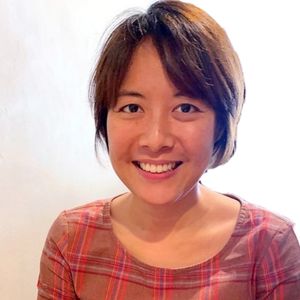
Sylvia Ang
University of Melbourne
Sylvia Ang is Lecturer in Sociology at Monash University. Her research with migrants in and from Asia is interested in the production and experiences of difference and inequalities, with a focus on ethnic relations, class, gender, postcolonialism and decolonization. She has published in the Journal of Ethnic and Migration Studies, Mobilities, and Ethnic and Racial Studies, among others. She is author of Contesting Chineseness: Nationality, Class, Gender and New Chinese migrants (2022).
She finds the mobility concept useful in three ways: 1) the relationality between mobility and immobility helps her to locate how (im)mobility is infused with meaning and power 2) ‘mobility’ is useful for not only thinking about physical movement but also social imaginaries 3) the concept’s attention to non-human movement helps her to think through how mobile objects, cities, capital and more are entangled in social processes and structures. Her work can be found on www.sylviaang.com. She tweets @sylviaswang
Links
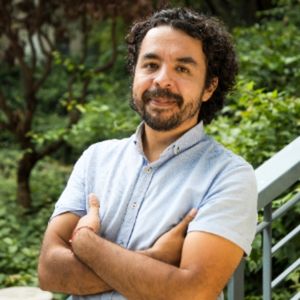
Roberto Castillo
Lingnan University
Roberto Castillo is an Assistant Professor at the Department of Cultural Studies at Lingnan University. Before joining Lingnan, he was a lecturer at the African Studies Programme at the University of Hong Kong. Roberto left Mexico for China almost 20 years ago, and has lived in different locations in the Asia/Pacific. He thinks of himself as a transnational migrant. Over the last decade, Roberto has been working on different aspects of African transnational mobilities in China, and more recently has published a book on the subject, and a couple of articles on ‘race’, racism and media representations of Africans in China and Chinese in Africa. He administers the website: www.africansinchina.net.
Links to recent work:
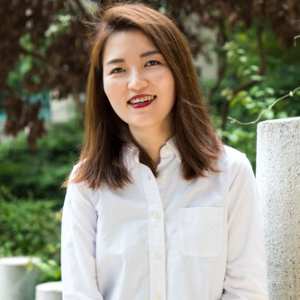
Iting Chen
Hong Kong U Space
I-ting Chen received her PhD in Cultural Studies at Lingnan University, Hong Kong. She is currently a lecturer at HKU SPACE Community College. Her research interests include Cold War politics, sexual labour, gender and sexuality, migration and mobility, and cross-strait intimacy between Taiwan and mainland China. Her articles are published and accepted by academic journals, including Cultural Studies, Inter-Asia Cultural Studies and Forum in Women’s and Gender Studies
Links: Journal article - “Looking for the clown in the 1980s: the melancholy clients in the Taiwan teahouse and their memories of being a ‘nobody’”
Link: https://www.tandfonline.com/doi/full/10.1080/09502386.2021.1912807
Journal article (in Chinese): 為什麼「茶裏王」天天去茶室?從茶室文化思考當代親密關係 (“Why ‘the King of Tea’ Visits Teahouse Every Day? Situating Contemporary Intimacy in Teahouse Culture")
Link: https://www.airitilibrary.com/Publication/alPublicationJournal?PublicationID=1727592x
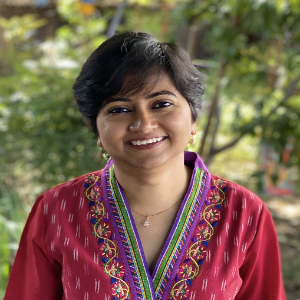
Suchismita Das
Ahmedabad University
Suchismita Das is an Assistant Professor at Ahmedabad University. She earned her PhD in Cultural Anthropology from the University of Chicago where she was also a postdoctoral teaching fellow. (Im)mobility is a prominent theme in her ethnographic research. Her doctoral ethnography expands the analysis of multiculturalism in India. As human subjects in the Eastern Himalayas articulate their undervalued cultural diversity with the valued biodiversity of the region, their bio-cultural assemblages, she argues, engender a more-than-human politics of recognition. In this intersection of eco-politics and ethno-politics, debates over the acceptable limits of the mobility of flora and fauna across national borders are staging-grounds for policing human mobility and belonging in India. Her current project examines infrastructure-collapse in the Himalayas as a material index of social experiences of climate change. Here, she analyses immobility both as a form of vulnerability – experienced when roads are washed away by increasingly erratic monsoons – and as a cultural resource that helps withstand environmental isolation.

Fran Martin
University of Melbourne
Fran Martin is Reader in Cultural Studies at the University of Melbourne. She recently concluded a 5-year research fellowship funded by the Australian Research Council whose findings have been published in Dreams of Flight: The Lives of Chinese Women Students in the West (Duke U.P. 2022). Fran’s prior research focussed on television, film, literature and other forms of cultural production in the PRC, Taiwan, and Hong Kong, with a specialization in cultures of gender and sexuality. Her monographs include Situating Sexualities: Queer Representation in Taiwanese Fiction, Film, and Public Culture (HK U.P., 2003); Backward Glances: Contemporary Chinese Cultures and the Female Homoerotic Imaginary (Duke U.P. 2010); and Telemodernities: Television and Transforming Lives in Asia (with T. Lewis and W. Sun, Duke U.P. 2016).
In her research with transnational youth cultures in and from Asia, the mobility concept is useful first in that it helps her think through multiple forms of movement, both human and non-human: movements of media, money, objects, concepts and more. Second, it highlights how the accelerated mobilities of our global era are always attended by the shadows of immobility and immobilization, which are integral to the mobility concept itself. Third, she is inspired by the way mobility points to the double sense of moving as a linked series of affective and physical processes: being moved by something, as well as moving across geographic space.
Links:

Leya Mathew
Ahmedabad University
In my research on educational aspirations in the context of market reforms in India, I found the notion of temporal migration compelling. Used primarily by post-socialist transition scholars, it captured the sense of having emigrated without leaving home. When homes, villages, and towns transformed from subsistence living to market driven plentitude, residents experienced the effects typical of emigration without leaving home. This experience of mobility alerts me to the diverse ways in which people feel movement as well as the significance of mobility in a political economy that is defined by expectations of movement. Meanwhile, in my current project on youth in higher education, the promises of professional education moved young women to cities despite parental reluctance. There are many leavings and coming backs, and through these, youth make and unmake themselves and their families. I’m currently mapping the diverse movements, frictions, channels, and effects of educational mobility, keeping in mind that feelings of im/mobility can take unexpected forms.
Link to recent work

Tejaswini Niranjana
Ahmedabad University
My research on musical exchange across diverse geographies in the global South strengthens my sense that 'mobility' is a useful concept with which to work. It can help us name different kinds of movement, of intangible as well as tangible things, and of people as well.
https://saathsaathmusic.com
https://www.dukeupress.edu/mobilizing-india
In my other research - on digital intimacy - I'm looking at forms of mobility and mobile subjects that are digitally mediated. As human interaction comes to be increasingly driven by data transmission, the mobile phone embodies our affective networks.
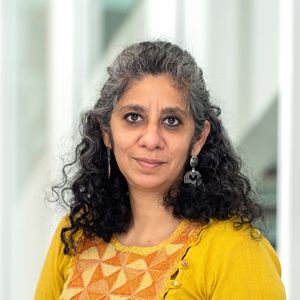
Surabhi Sharma
New York University Abu Dhabi
Surabhi has been an independent filmmaker making feature-length documentaries and short films since 2000. Her documentaries, fiction, and video installations engage with cities in transition using the lens of labor, music, and migration. Surabhi’s films have been screened and awarded at international film festivals like the Dubai International Film Festival, Yamagata International Documentary Film Festival, MAMI Mumbai Film Festival, amongst others. Her films have been recognised and awarded at the 8th Asia Pacific Screen Awards, Brisbane 2016; Eco-Cinema, Greece 2003 (The Ramsar-Medwet Award), Film South Asia, Kathmandu 2001; Karachi Film Festival 2002; and The Festival of Three Continents, Buenos Aires 2002.
Her video installations have been exhibited at the Serpentine Gallery, London; nGbK, Berlin, Shenzhen and Hong Kong Bi-city Biennale of Urbanism and Architecture and the 11th Shanghai Biennale.
Surabhi is an Associate Professor of Practice in the Film and New Media Program at NYUAD.
Links to Films:
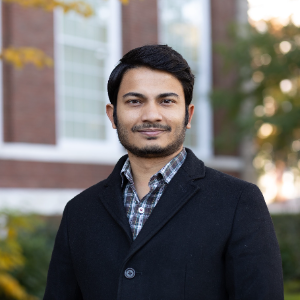
Chinmay Tumbe
Indian Institute of Management Ahmedabad
Chinmay Tumbe loves to laugh and learn. He is passionate about migration, cities and history, and is currently a faculty member in the Economics Area at the Indian Institute of Management Ahmedabad. An alumnus of the London School of Economics and Political Science, the Indian Institute of Management Bangalore; Ruia College, Mumbai; and Rishi Valley School, Madanapalle; he has been a faculty member at the Tata Institute of Social Sciences, Hyderabad. He was a 2013 Jean Monnet Fellow at the European University Institute, Florence, and the 2018 Alfred D. Chandler Jr. International Visiting Scholar in Business History at Harvard Business School, Boston. His first book, India Moving: A History of Migration, was published in 2018 and second book The Age of Pandemics, 1817-1920: How they shaped India and the World, was published in 2020. He is a member of the The Lancet Covid-19 India Taskforce and was a member of the Working Group on Migration of the Ministry of Housing and Urban Poverty Alleviation in 2016-17. He has published widely in leading journals and newspapers and helped set up the IIMA Archives.
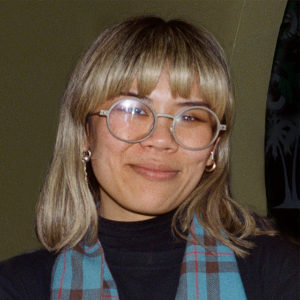
Vickie Zhang
National University of Singapore
Vickie Zhang is a cultural geographer interested in the intensities and energetics of ordinary life in transitioning industries and economies, focussing on the changing lives of workers. Her research approaches the micropolitics of change by paying ethnographic attention to workers’ already-unfolding experiences of transition through theories of affect and embodiment, diverse forms of storytelling, and fieldwork undertaken in Australia and China. She has previously investigated the embodied transitions of industrial workers affected by coalmine closures and the mobile experiences of rural labour migrants. She completed her PhD in Geography at The University of Melbourne and is currently Assistant Professor in the Department of Geography, National University of Singapore.